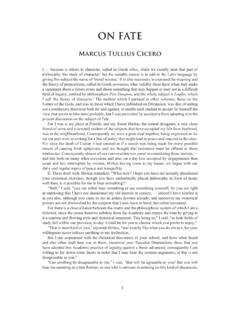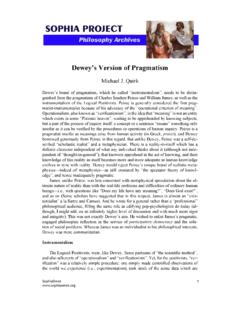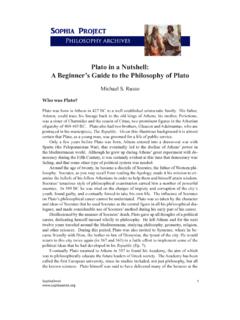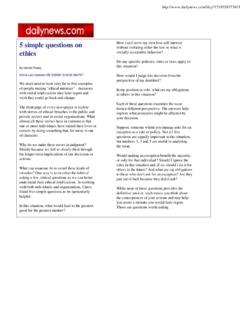Transcription of Introduction to Socratic Ethics - Sophia Project
1 SophiaOmni to Socratic EthicsMichael S. RussoThe period in which Socrates lived is known as the Golden Age of Athens. In 480 the Greeks had decisively defeated the Persians at the Battle of Salamis, and the peace and prosperity that ensued ushered in a period of incredible artistic and cultural achievement, the likes of which the world has not seen since. In was in the midst of this fertile period that Socrates came to prominence and eventually was put to was born in Athens around 470 He was the son of Sophroniscus, a sculp-tor, and Phaenarete, a midwife. During the early part of his life, he seems to have followed in his father s footsteps, working as a sculptor.
2 He was married to Xanthippe (who is often depicted as something of a shrew) and she bore him three sons, Lamprocles, Sophroniscus and Menexenus. Socrates was hardly an ideal husband or father; he was so preoccupied with his search for wisdom that he often neglected his family and was not overly concerned with supporting them for his education, it is said that he was a student of Anaxagoras, one of the famous early philosophers of Greece. At first he spent his time studying cosmology (or the study of the nature of reality) but later abandoned this field in order to devote himself almost ex-clusively to Ethics . He came to believe that it was his mission to act as a kind of gadfly to the Athenian people, provoking them into recognizing their moral ignorance.
3 Need-less to say, his constant interrogation did not endear him to all of the citizens of Athens. While Socrates developed a following among many of the more idealistic young men of Athens Plato, for example, was a devoted disciple of his he soon incurred the wrath of some of the most powerful men in the 399 Socrates was put on trial for atheism (not believing in the gods of Athens) and corrupting the youth of the City (by teaching them to question everything). In the end, the jury found Socrates guilty as charged and condemned him to death by the drink-ing of hemlock. Although his execution was delayed for a month and he had ample time to escape, Socrates refused to do so because he felt it would be contrary to his principles (see Plato s Crito).
4 As Plato describes it, Socrates last day on earth was spent discussing the question of the immortality of his soul with his friends Cebes and Simmias (see Plato s Phaedo). Will the Real Socrates Please Stand Up?It is important to keep in mind that Socrates himself wrote absolutely nothing. Most of our knowledge of his life and philosophical thought comes from the testimonies of oth-ers most notably, Plato, Xenophon and Aristophanes. One problem with any attempt to discover the real Socrates is that at times the ac-SophiaOmni written about him are contradictory. In The Clouds, for example, Aristophanes portrays Socrates as the worst sort of Sophist and as an atheist.
5 Plato and Xenophon, on the other hand, virtually transform Socrates into a secular saint and martyr. Another problem that we have in trying to find the real Socrates is that his disciple Pla-to wrote numerous dialogues, using Socrates as the main character. While some of these dialogues do seem to represent Socrates actual views, in others particularly in the later dialogues Plato uses Socrates simply as a mouthpiece for his own philosophical system. We must be careful, therefore, to separate the historical Socrates from the fictitious character of Socrates that we find in Aristophanes Clouds and at times in Plato. Most commentators believe that the Socrates presented in Plato s early dialogues (especially the Euthyphro, Crito and the Apology) most closely represents the real Socrates.
6 It is to these works that we should turn, therefore, if we want to flesh out Socrates actual approach to Ignorance and IronyIn the Apology Socrates describes an event that helped to shape his approach to philosophy. His friend Chaerephon went to the shrine of Apollo at Delphi and asked the priestess of the shrine whether there was anyone wiser than Socrates. The priestess, speaking for Apollo, answered that no one was wiser than Socrates. Upon hearing this story, Socrates set out to prove the priestess wrong and began to question those in Athens who had a reputation for wisdom politicians, poets, and artisans. What he discovered was that although all these individuals claimed to have wisdom, they actually possessed very little.
7 Socrates concluded that the goddess was in fact right: he was much wiser than his fellow citizens because he at least knew how ignorant he was, whereas they did not. This affirmation of his own ignorance is the starting point of Socrates philosophy. In his discussions with others Socrates always portrays himself as being ignorant about the topic being discussed and in need of instruction. We should not understand this sort of affirmation of ignorance as a form of relativism (the belief that there is no objective truth) or skepticism (the belief that that the truth is ultimately unknowable); nor should we take seriously Socrates claim that he is actually in need of instruction. Rather, we should recognize that Socrates is being ironic when he fains ignorance about moral mat-ters.
8 He is simply pretending not to understand in order to draw out the person with whom he is arguing. By posing as ignorant, Socrates is able to seduce others into making moral claims, and then is able to show them how little they actually know about the topic being Socratic MethodIn Plato s early dialogues, the method of argumentation that Socrates uses is called the elenchos (eh-lenk-us) or examination. In these dialogues we rarely find Socrates lecturing or directly answering the questions; instead we find him asking questions of others in an attempt to lead them indirectly to the truth. Typically Socrates will ask someone who claims to be an expert to define a moral term that he is using the nature of piety, courage, friendship or justice, for example.
9 He then proceeds to demonstrate that the definition that has been given is inadequate or contradic-SophiaOmni This leads the person with whom he is arguing to come up with other definitions, which, though more adequate, are also shown to be problematic. Most of Plato s early dialogues end inconclusively, with the person being interrogated by Socrates at a complete loss to know what he believes about the what is the point of the elenchos if it simply leads the person being questioned to end up more confused than when he started? The answer is that Socrates method serves both a negative as well as a positive function. Negatively, Socrates is attempting to show the individual with whom he is arguing that the view which he holds is untenable.
10 On the positive side his goal is to move closer to the eidos or universal definition of the thing being spoken about. In the Euthyphro, for example, the subject matter is piety, so he is looking for the eidos of piety a standard for determining which actions are pious or impious in all circumstances. Once we have this standard, he believes, we will possess certain knowledge (episteme) about right and wrong/good and bad/virtue and vice. And with this knowledge, he is convinced that happiness is all but inevitable. Virtue as KnowledgeThe ultimate aim of Socrates philosophical method is always ethical. Socrates believed that if one knows what the good is, one will always do what is good. Thus if one truly understands the meaning of courage, self-control, or justice, one will act in a courageous, self-controlled and just corollary to this view is that all vice, then, must be due to ignorance.
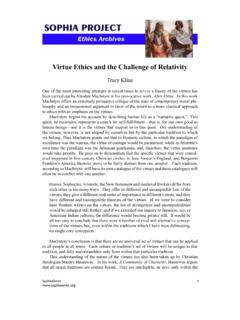
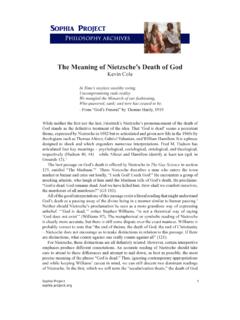
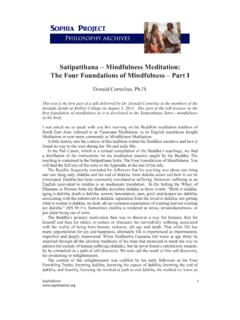
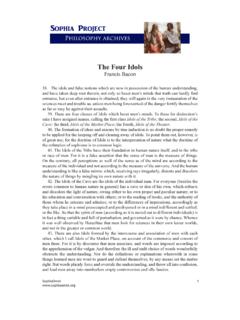
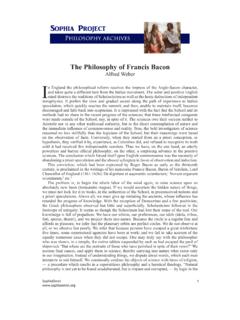
![Notes on Plato’s Gorgias [449c-466a] - Sophia Project](/cache/preview/0/5/3/c/e/1/d/7/thumb-053ce1d73ee53d8f939f1988e67d4864.jpg)
![Critique of Rhetoric [Gorgias 447a-461c] - Sophia Project](/cache/preview/9/f/9/b/c/2/9/8/thumb-9f9bc298ba899803867703925e030fa2.jpg)
